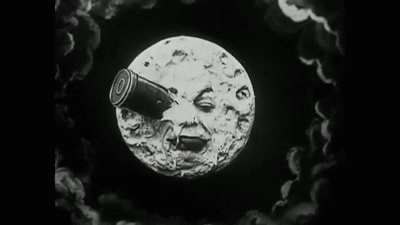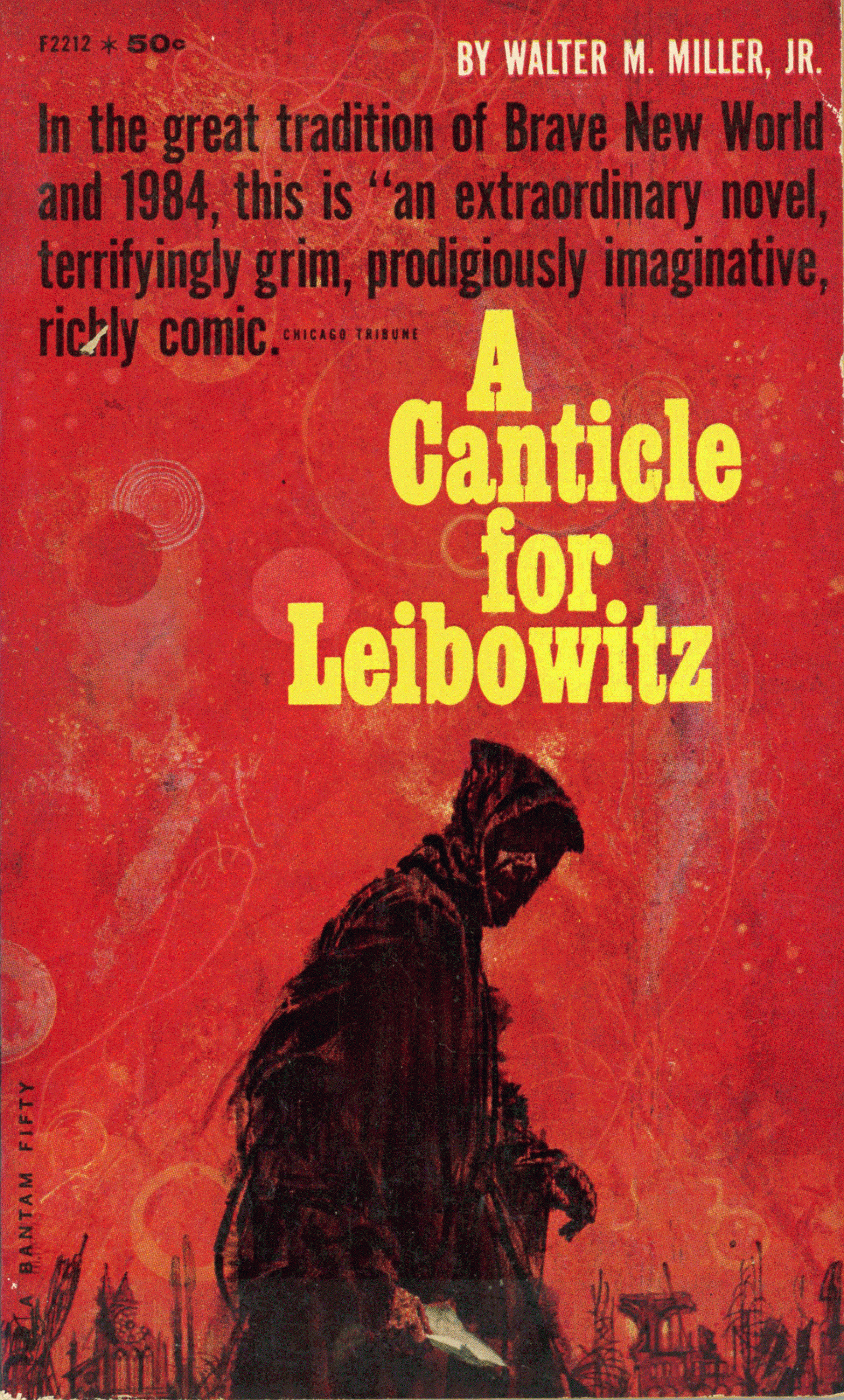BROKEN KNOWLEDGE (3)
By:
October 11, 2025

University of Toronto philosopher Mark Kingwell and HILOBROW‘s Josh Glenn are coauthors of The Idler’s Glossary (2008), The Wage Slave’s Glossary (2011), and The Adventurer’s Glossary (2021). In 2022, they engaged in an epistolary exchange about science fiction. Via the series BROKEN KNOWLEDGE, the title of which references Francis Bacon’s philosophy, HILOBROW is pleased to share a lightly edited version of their exchange with our readers. Also see Josh and Mark’s previous exchange 49th PARALLEL.
BROKEN KNOWLEDGE: FIRST CONTACT | WHAT IF? | A HYBRID GENRE | COUNTERFACTUALS | A HOT DILUTE SOUP | I’M A CYBORG | APOPHENIC-CURIOUS | AN AESTHETICS OF DIRT | PAGING DR. KRISTEVA | POLICING THE GENRE | FAMILIAR STRANGENESS | GAME OVER | THE WORLD VIEWED | DEFAMILIARIZATION | SINGULAR CREATURES | ALIEN ARCHAEOLOGIST | THE PHENOMENOLOGY OF SCREEN-TIME | HOMO SUPERIOR | EVERYTHING IS US.

12th September, 2022
BOSTON
You went deep into your nerd-dom, in your note of the 9th! Although I’ve caught glimpses of this stuff before (we’ve talked about your model-building, for example), some of it is revelatory to me. So let me reciprocate, before we get into the “what is sf?” quagmire.
Yes, I too was deeply into Dungeons & Dragons. My cousin Marty introduced me to the game/cult in the summer of ’78 or ’79, and I went back to Boston and introduced it to my friends. We haunted a store in Harvard Square called Games People Play; and yes, I had a Dragon subscription. I was president of Boston Latin School’s Strategic Gaming Society. And then I stopped playing — I feel like this happened at the exact moment that girls finally became interested in me as a potential romantic partner. Many years later, I’d introduce my sons and their friends to the game, and so got to play it again for a while…
Also, since you mentioned that all sane pre-adolescent boys of the era wanted to be Han Solo… I was into Darth Vader! I had an excellent Vader poster that said something like “COOL, CALM, AND COLLECTED” on it. I still have a soft spot for “lawful evil” villains.
My father was a fan of some fantasy franchises — he read us the Narnia and Wizard of Oz books; and my stepmother was a fan of Tolkien, and of Ursula K. Le Guin’s Earthsea series. Science fiction was not much on offer — although I’d eventually discover on Dad’s shelves a few classics: Orwell’s Nineteen Eighty-Four, Shute’s On the Beach, Stewart’s Earth Abides, Percy’s Love in the Ruins, Lewis’s Perelandra series. Oh, and Miller’s A Canticle for Leibowitz — one of your favorites, I know, and mine too. Also, Madeleine L’Engle’s Wrinkle in Time series was a favorite of my stepmother’s.
My father’s older sister, Maggie, however, was a pretty serious sf fan. In the summers, when we’d stay with her for a few weeks (at her place in Eagles Mere, Penn.), I’d hoover up Bradbury, Asimov, Van Vogt, Clarke, Anderson, Wyndham, and Christopher. Also, she let her kids buy as much sf as they liked, so my cousins introduced me to the likes of Harrison, Herbert, McCaffrey, Aldiss, Moorcock, Crowley, Cordwainer Smith… and a lot of trashy stuff too, like John Norman’s Gor series, and Niven and Pournelle’s books. Looking back at this list, I see that many of the more literary/experimentalist sf authors of the ’60s and ’70s — Dick, Bester, Ballard, Lem, Brunner, Malzberg, Pynchon, Delany, Butler, Burroughs, Disch, Sladek, Russ — are missing. I’d discover these writers later.
That’s a lot of list-making — a mark of a true nerd. Let me wrap up this section of my missive by offering a shout-out to Marty, the cousin who not only turned me on to D&D but sent me an enormous box of discarded sf and fantasy novels when I was 14 or so.
Let’s come back to utopia later, though there is a school of thought which suggests that sf ought to be regarded as a sub-genre of utopian literature — for the reason you articulate, the fact that sf even at its cheesiest can break the enchantment of the quotidian (I’m paraphrasing Fredric Jameson) and help persuade us that another world is possible.
As you note, I really enjoy defining and redefining genres, sub-genres, and eras within genres. But I engage in such activity fully cognizant that this sort of border-patrolling action obfuscates as much as it reveals. I genre-ize seriously, yes, but not earnestly. Having put that caveat out there, here’s a first crack at the “what is sf?” question. My extensive reading in proto-sf and early sf from the 1900–1935 period has persuaded me that sf is and always has been a hybrid genre — a Frankenstein’s monster cobbled together out of adventure, romance, westerns, crime, gothic horror, fantasy, Symbolist poetry, occult philosophy, you name it. A “meta-genre,” perhaps. Yes, it’s often set in the future, and as such it often explores the potential consequences of social, cultural, economic, and of course scientific and technological developments in the present moment. But there are many examples of sf — Lost Race stories, say — that don’t fit this bill. Perhaps more helpful, in thinking about how to distinguish sf from other examples of genre fiction, is a focus on the idea that unlike fantasy, sf eschews the supernatural and magic. From ESP to faster-than-light travel and time travel, everything in an sf story, no matter how improbable or fantastical, must be explained via scientific(ish) analysis. But this gets pretty mushy, too — and it’s always been mushy, since the genre’s early days.
I’m answering your question with a question: “Yeah, what is sf?” Is it lame that the editor of MIT Press’s Radium Age series doesn’t have a satisfactory, pat response to this one?
Maybe we should focus on some of the boundary cases, and triangulate from there…
Josh
ALSO SEE: Josh’s BEST 250 ADVENTURES of the 20th CENTURY list | Mark on BATTLESTAR GALACTICA and THE HONG KONG CAVALIERS | Mark and Josh’s exchange 49th PARALLEL.
